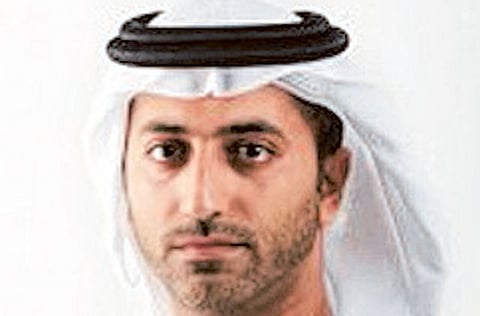Safety assured in UAE nuclear energy
UAE will not enrich uranium on its own land

Dubai: An Emirates Nuclear Energy Corporation (Enec) official has assured the public that four nuclear energy units set to be built in the country will be completely safe.
One nuclear energy plant, consisting of four units, is to be completed by 2020 in the UAE to help meet the country’s demand for electricity.
Fahad Al Qah’tani, Director of External Affairs and Communications at Enec, speaking to the audience at a lecture at the Cultural and Scientific Association, said that the UAE has safety as its top priority.
“According to the Risk Probability Assessment that was done for the plants, the probability of a major accident happening is once every half a million years.” Al Qah’tani said.
In April 2008, the UAE released its Policy on the Evaluation and Potential Development of Peaceful Nuclear Energy.
Construction of the Barakah nuclear power plant project, which consists of four units, started in July this year, when the Unit 1 Safety Related Concrete was poured.
The first unit is set to operate by 2017, the second in 2018 and so on until the last unit gets online in 2020.
“The technology the UAE will be using in the plant is originally American and has been developed by the South Koreans over the last 20 years.” Al Qah’tani said.
“We did not want to get new technology that has not been tested and tried, we wanted something up to date and new but tested.” he added.
Enec has awarded the prime contract for the UAE civil nuclear energy programme to the Korean Electric Power Corporation (Kepco).
Al Qah’tani said Kepco is one of the world leaders in safety, plant reliability and efficiency and is recognised by the World Association of Nuclear Operators (Wano) as a leader in safety and currently receives among the highest scores in the Wano performance indicator programme.
The current cost of the project is estimated at $20 billion (Dh73 billion).
“The plant will provide 25 per cent of the electricity needed by the UAE and the 75 per cent will come from renewable energy and natural gas.” he said.
Al Qah’tani explained that the UAE will not enrich uranium on its own land, but that it will be supplied by six different countries starting 2014.
He explained that this ensures that the nuclear programme will stay peaceful, as uranium used for nuclear weapons needs to be enriched to 90 per cent, while Uranium that is used for peaceful purposes is only enriched between five to 20 per cent.
He added that enriching uranium is very costly.
Nuclear energy, he said, is the most efficient and clean source of energy suited to the UAE that can be used.
He said that the UAE depends on natural gas supplied by Qatar, and the electricity produced does not meet the demand.
Researches conducted by Enec indicated that the electricity demand will increase to almost 10 per cent in 2040, from the 2.4 per cent it is at currently.
He said that burning raw oil is very expensive and inefficient, and burning coal is polluting.
“One capsule of nuclear fuel — which is very small — produces the same energy that one tonne of coal would produce, which can supply a house for four months.” Al Qahtani explained.
As for renewable energy like solar and wind energy, he said that the technology has not yet been developed enough to produce enough energy that a country can depend on.
Sign up for the Daily Briefing
Get the latest news and updates straight to your inbox



